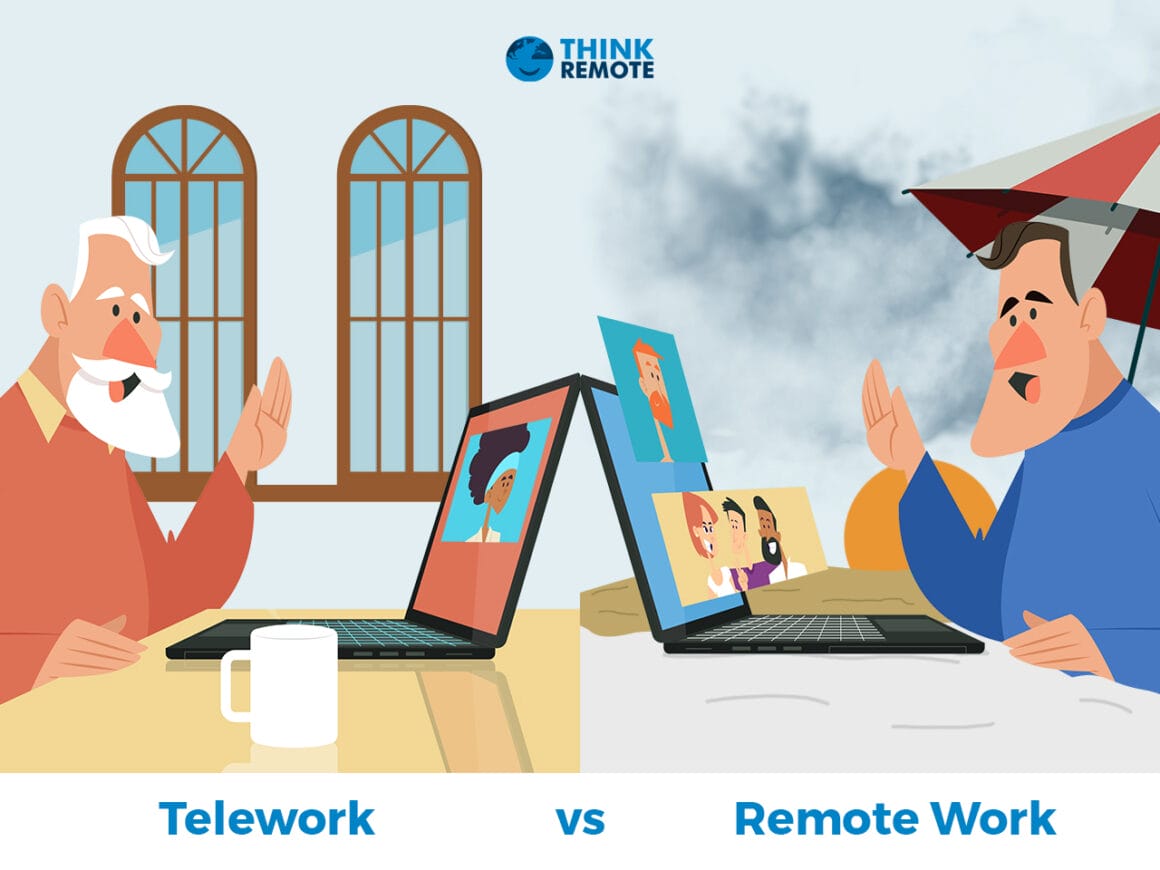Have you heard the terms ‘remote work’ and ‘telework’ and wondered what the difference is? If you have, then you’re not alone. As more and more people are working outside the office we are all learning new terminology – so how can you tell if you’re telecommuting vs. remote work? Here are some explanations to make the difference clearer.
What Does Telework Mean?
Telework is another term for remote work, but with a slight difference. It has its roots in the pre-internet world and is used to talk about people who work remotely or off-site some or all of the time.
Teleworking or telecommuting was a term that was first coined by NASA engineer Jim Nelson in 1973. He was looking for solutions to the energy crisis and how to find a better balance between work and modern life, problems we are still working on today! Of course, this was 16 years before Tim Berners-Lee invented the Hypertext Transfer Protocol, which is where the ‘tele’ prefix comes from; this was working via telephone.
What is a Telecommute Position?
The telecommute definition has been updated for the modern era, with a teleworker now meaning someone who works from the company office, at least some of the time, but at other times you’ll telework from home, client sites, co-working spaces etc.
This is the sort of role that is being offered now to help encourage staff to return to the office, you’ll also see it called a hybrid remote working solution.
What is Remote Work?
In contrast to telework, remote work is definitely a post-internet term. A remote worker will rarely if ever, come into the office and can often work outside a commutable distance from the office, sometimes even in different countries.
The key difference when comparing remote work vs telework is that a remote worker isn’t expected to go into the office on a regular basis, if at all. You might hire someone who lives in a different town, state, country or continent for a remote role.
Working remotely really only requires a reliable internet connection, and this is the type of role that allows some remote workers to enjoy the ‘digital nomad’ lifestyle where they travel the world and work from wherever they may be.
Teleworking vs Remote Working
There are pros and cons to both types of working and if you’re weighing up the balance of remote vs telecommute in your head, here are some things to consider.
1. Geography
Teleworking has geographical ties. You might have to go into the office a day or more a week, or once in a while, but in either scenario, you will need to be within a commutable difference of your head office for those times when you do attend. While you will be working from multiple locations, those are more likely to be restricted to offices, client sites, or co-working spaces.
On the other hand, remote working, is far less prescriptive about where you work. You could be at home, at the local cat cafe, or following the digital nomad lifestyle and traveling the world. This also tends to bring with it more flexibility about when you work, particularly if your remote team covers different time zones.
2. Management
In teleworking and telecommuting roles, you will still have a clear line of report to someone at head office. You’ll probably be expected to head into the office for regular progress meetings or to discuss targets with the management.
In a remote role that management tends to happen via video call or using task management software. Remote workers, generally, are given more leeway for how they do things, and less managerial oversight.
3. Connection
Building a sense of team spirit is easier if people meet in public, even if it’s only once a month, or have that sense of belonging to a company. In other words, teleworkers are easier to keep engaged.
You can keep remote workers feeling connected with the rest of the team but it takes more work, mainly if different timezones or even languages are involved.
Check out these communication strategies for small remote teams!
4. Flexibility
Teleworking began gaining popularity pre-pandemic when people looked for a better work/life balance. Having one or both parents work from home a couple of days a week helped with school drop-offs, for example.
As a general rule of thumb in the remote vs telework debate, a telecommute role will have the expectation of keeping core office hours. A fully remote role is likely to give you the added flexibility of choosing your own hours.
Telework vs Remote Work: Which One is For You?
While most staff want to be able to work from home, at least on a part-time basis, the truth is that fully remote working isn’t for everyone. It requires the team member to be good at problem-solving, time management, and working in isolation.
If you have the type of personality that needs more social time or a greater amount of physical connection with your work then a telework role is right for you. If you want flexibility and freedom, with the potential to travel the world? Remote roles are for you.
Whichever option you choose you will have increased productivity, better health, and an improved work/life balance. Sounds like a win-win situation doesn’t it!






